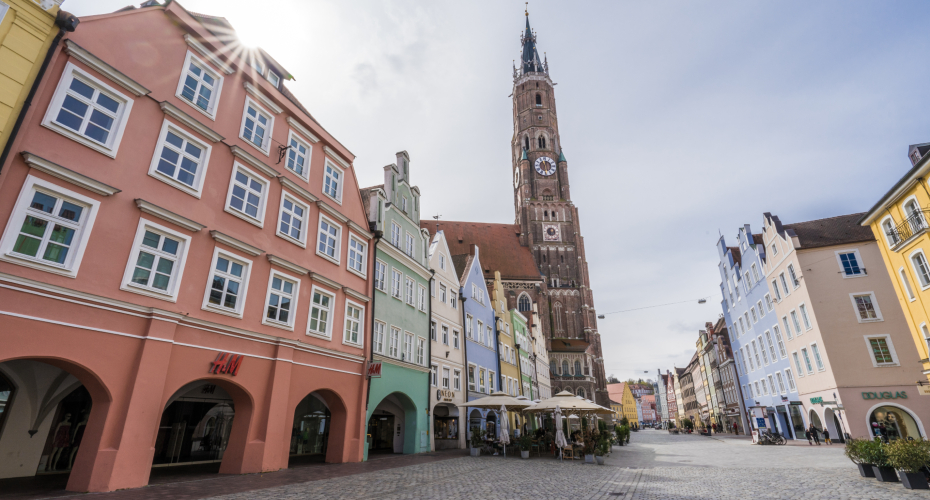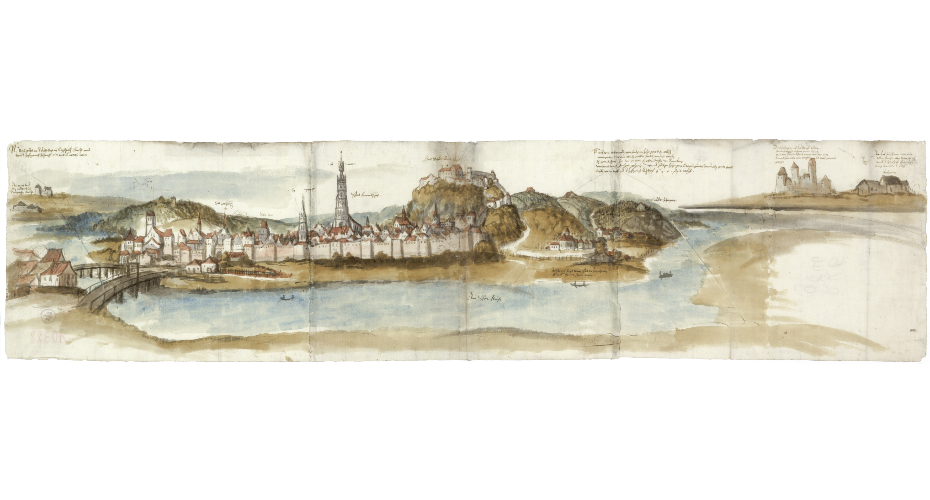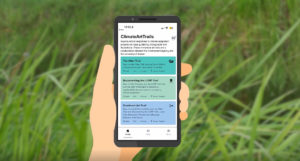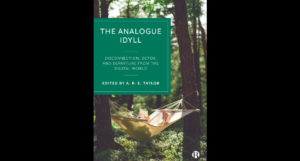Digital heritage trail invites users to attend a European royal wedding in 1475

Landshut City Centre
The pomp and pageantry of one of Europe’s iconic Renaissance-era weddings, and the massive re-enactment festival the wedding inspires today, have been brought together in a new app.
Hidden Landshut transports users to 1475 and the lavish royal wedding of George, heir to the duchy of Lower Bavaria, to Hedwig Jagiellon, daughter of the King of Poland. Through the eyes of ‘Anna’, who has come to Landshut to work as a maid, the app explores the political significance of the event.
At the same time the app tells the story of Landshuter Hochzeit, the historical re-enactment that has been held since 1903. Today, the Landshut Wedding Festival is one of the largest events of its type in Europe, attracting 600,000 visitors. Usually it takes place every four years, but the Covid pandemic has meant that this year’s festival – held over most of July – comes six years after the last event.
Hidden Landshut is the latest in the Hidden Cities apps series, created by historians at the University of Exeter, and designed to reinvent conventional tours through collaborative research and Extended Reality using smartphones.
Dr David Rosenthal, Hidden Cities trail director, said: “In Renaissance Europe, marriages like the Landshut Wedding cemented political status and alliances, and in transforming the city into a stage, this message was clearly telegraphed to peers and subjects. As with many Hidden Cities trails, we wanted to reimagine all of this from a ground-level perspective. So we constructed the character of ‘Anna’, who arrives in the city for the first time and walks into the middle of it all.”

The Exeter project team collaborated with the Bavarian State Archives and Landshut historian Dr Irmgard Lackner to build up a detailed picture of the week-long wedding and the surrounding festivities.
Duke Ludwig – known as Ludwig the Rich – spared no expense on the celebration, which doubled the population of Landshut to 20,000. Town houses were converted into guest quarters; squares became jousting venues; and the town hall hosted sumptuous banquets and dances. The wedding itself would attract Germany’s Emperor, who escorted Hedwig to the altar – recognition of how the marriage consolidated the power of Duke Ludwig’s house.
For the first time, the app overlays a modern street map not with a historic city map, but with a wooden model of Landshut made in 1571, a rare scale model from this period. Walking on this geolocated model is designed to enhance the ‘time travel’ experience.
Professor Fabrizio Nevola, Chair in Art History and Visual Culture, and head of the Hidden Cities project, said: “The app is timed to coincide with the 2023 re-enactment festival. But it also creates a more permanent piece of situated theatre around the 1475 wedding, which we hope will engage, inform and entertain the countless visitors and tourists to the area.”
Hidden Landshut brings the number of cities covered by the apps to eight, with immersive trails available for Exeter, Florence, Valencia, Hamburg, Trento, Copenhagen and Deventer. Each app is developed in collaboration with museums and higher education partners and is available free on the Apple and Google stores.




